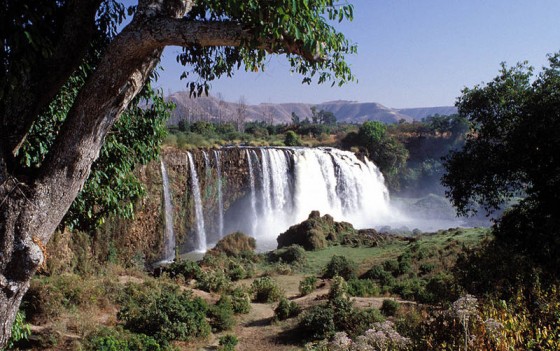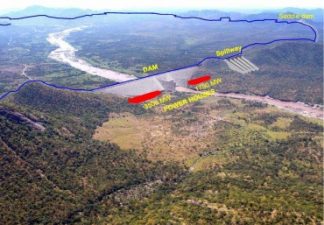 Green Prophet has followed the Renaissance Dam project for months, on which another Ethiopian dam project sheds some light.
Green Prophet has followed the Renaissance Dam project for months, on which another Ethiopian dam project sheds some light.
On its list of dams to be constructed, Ethiopia’s Renaissance Dam project (formerly known as the Grand Millennium Dam) has drawn passionate commentary to our site. Despite the country’s inability to afford the dam and its potential negative environmental impact, not to mention the risks that climate change poses to its long term sustainability, no environmental or social impact assessments have been conducted.
Thanks to a concerted campaign from Prime Minister Meles Zenawi’s office, Ethiopians fiercely (and understandably) defend their right to the enhanced comfort and revenue promised by 5,250MW of new electrical output. But elsewhere in the country, the UNESCO World Heritage Committee urged the government to halt a similar project, the controversial Gibe III dam.
No bid dams
The Gibe III dam on the Omo River is expected to have a devastating impact on Lake Turkana in Kenya, a unique ecosystem with outstanding universal value that is protected as a World Heritage Site.
Like the Ethiopian Renaissance Dam, Gibe III was awarded, in a no-bid contract, to the Italian contractors Salini Costruttori S.p.A. And despite activism from International Rivers and other organizations concerned with the affect that Gibe III will have on northern Kenya’s already impoverished people, Ethiopia has not agreed to conduct environmental or social impact assessments.
The Poverty Precipice
The World Bank did their own report in April, 2010, called the “Assessment of Hydrological Impacts of Ethiopia’s Omo Basin on Kenya’s Lake Turkana Water Levels,” which found that Gibe III would result in a significant drop in lake levels, disrupt the seasonal flooding season and nutrient levels, and increase the lake’s salinity.
If Gibe III and subsequent upgrades are allowed to proceed, thousands of people and livestock that rely on Lake Turkana for their livelihood will be pushed closer to the drought and famine conditions that are already claiming 2,000 lives a day in the region.
The World Heritage Committee sites article 6 of the convention which requires State Parties not to take any deliberate measures which might damage directly or indirectly the cultural and national heritage located on the territory of another state party.
They have asked any financial backers to withold funding and will send in their own monitoring team at the end of 2011 in order to better evaluate the situation.
The Scientific Approach
The Ethiopian Renaissance Dam may not be a protected World Heritage Site, but it is predicted that infilling alone will cause a 25% reduction in river flow to Egypt, which relies almost entirely on the Nile for its water supply.
By failing to pursue a scientific approach to the construction of Ethiopia’s various dams, the country is risking the well-being not only of their own people, but that of its neighbors.
Respondents on this site have been very weary of interference from outsiders, which is understandable. However, as International Rivers points out, after Afghanistan, Ethiopia is the world’s second largest recipient of international aid. Making sure that its government does not make sudden moves that will render this population even more vulnerable is completely pragmatic.
The Nile River and Ethiopian Renaissance Dam Background stories:
Ethiopia Can’t Afford the New Nile Dam
Defiant Ethiopia to Proceed with Massive Nile Dam
How Climate Change Could Affect the New Nile Dam



